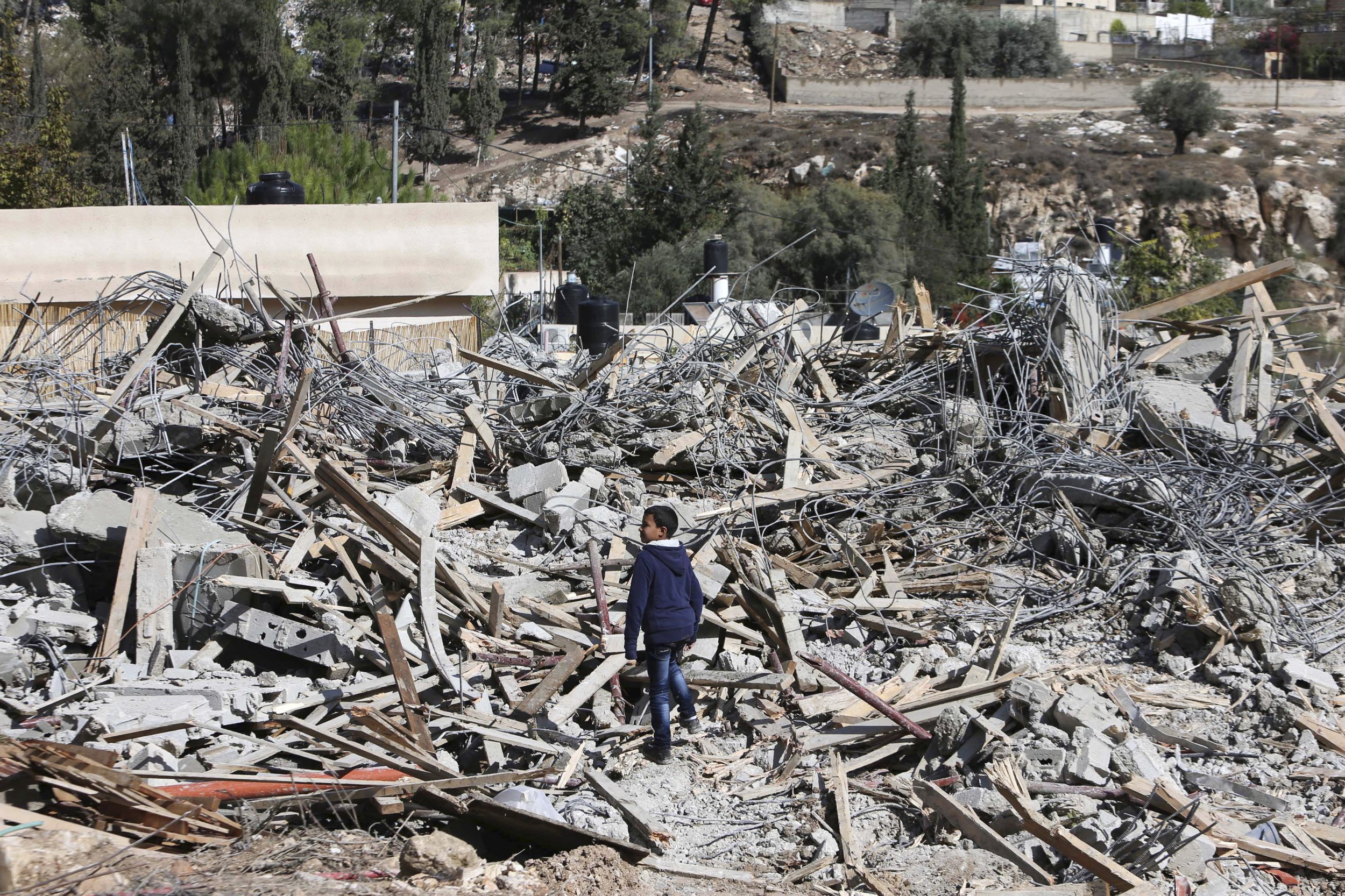
Israel's minority Palestinian population have held a general strike across the country ahead of a rally in Tel Aviv's Rabin Square to protest against the demolition of houses belonging to Arab citizens.
The rally is one of the first instances that Israel's Arab population has taken its protests to the streets of Tel Aviv over the government's policies, as such marches are usually restricted to Arab-majority areas unless it involves the conflict with Palestinians in the West Bank and the Gaza Strip, analysts say.
The country's Higher Arab Monitoring Committee, representing Israel's Arab community, confirmed that the general strike was being implemented not only because of the demolitions but also due to an increase in wider discrimination towards the minority.
"This strike is a response to the increased action by the Israeli authorities against Arab homes and the ongoing harsh policy of incitement to hatred against Arabs which was launched by prime minister Benjamin Netanyahu during the elections," the committee said.
During last month's election, Netanyahu warned Israeli voters that Arabs were heading to the polls "in droves" to vote him out of power. The tactic, to boost his vote and secure a fourth term, was successful in maintaining his power amid a challenge from Isaac Herzog's Zionist Union.
However, the Israeli leader has since apologised for his remarks. In a video posted on his Facebook page shortly after his victory, Netanyahu said: "I know that the things I said a few days ago offended Israel's Arabs. I had no intention for this to happen, I regret this."
In the country's northern Arab towns, schools, higher education institutions, banks and shops were closed in the strike. Both the general strike and the protest in Tel Aviv have been supported by the Arab-majority Joint List party, which now represents Israel's third-largest party after the election.
Thousands of Arab houses have been declared illegal by the Israeli government for not obtaining the correct planning permission or authorisation for construction, while Arab citizens complain that the government refuses to give enough permits, forcing them to have no choice but to build illegally, leaving them vulnerable to demolition by the state.
Arabs rights group Adalah released figures which show that only 4.6% of new homes built in Israel are constructed in Arab areas while Israeli settlements in the West Bank receive four times more housing units.
Ron Gilran, vice-president at the Tel Aviv-based geopolitical risk consultancy The Levantine Group, says that this rally is significant as it is moving away from Arab centres to the heart of one of Israel's biggest cities, Tel Aviv. Images circulating on social media showed thousands massing in the square to protest the Israeli government's planning policies.
"The most notable thing about this protest is the fact that they are holding it in Rabin Square in Tel Aviv," says Gilran. "It's very iconic. Usually these types of protests, general strikes, happen in the Arab sector, so the majority of the Israeli population can't really feel it."
"Now they are taking it to the heart of Tel Aviv, which is notable. I would say that it reflects to a certain degree the new spirit of Ayman Odeh, the new leader of the Joint List," he adds. "It's definitely reflective of a new way of thinking of how to approach the Israeli population and the Israeli government."
The Palestinians, known within the country as Arab-Israelis, remained when the state of Israel was created in 1948 and today represent approximately 1.4 million or 20% of the country's population, according to Israel's Central Bureau of Statistics.
Uncommon Knowledge
Newsweek is committed to challenging conventional wisdom and finding connections in the search for common ground.
Newsweek is committed to challenging conventional wisdom and finding connections in the search for common ground.
About the writer
Jack is International Security and Terrorism Correspondent for Newsweek.
Email: j.moore@newsweek.com
Encrypted email: jfxm@protonmail.com
Available on Whatsapp, Signal, Wickr, Telegram, Viber.
Twitter: @JFXM
Instagram: Read more
To read how Newsweek uses AI as a newsroom tool, Click here.








